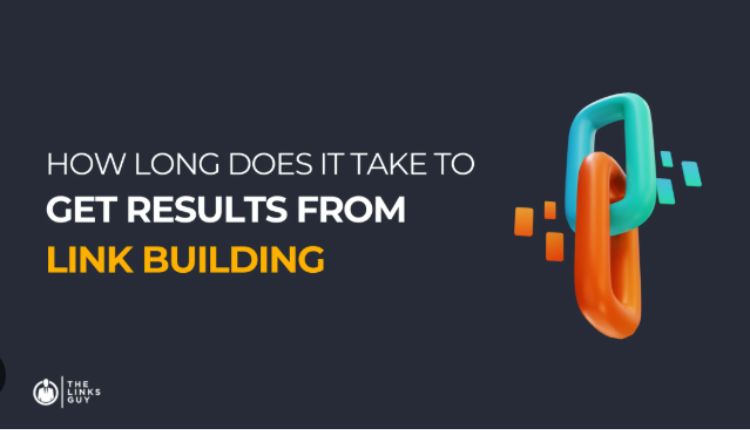Table of Contents
- Understanding the Basics of Link Building
- The Influence of Link Building on SEO
- Factors Affecting the Link Building Timeline
- Estimating When to Expect Results
- Strategies to Optimize Link-Building Efforts
- Common Challenges and How to Overcome Them
- Experts Share Their Insights
- Future Trends in Link Building
Understanding the Basics of Link Building
Link building sits at the core of search engine optimization (SEO) and is pivotal in how web pages secure prominence on search engine results pages (SERPs). This practice involves acquiring hyperlinks from other websites, which directs users from these sites to your own. The significance lies in that search engines perceive each link as a vote of confidence for your page’s content. Link building isn’t just about amassing a large number of links; instead, it’s about acquiring high-quality links that signify the relevance and authority of your site. A crucial consideration for any SEO strategy is understanding how long do backlinks take to work and realizing that patience is a fundamental part of the process.
There are various strategies to procure these valuable links. Whether through guest blogging, content syndication, or strategic partnerships, each method serves a tailored purpose and timeline. Guest posts allow content to be featured on external sites, providing backlinks and introducing your brand to new audiences. Partnerships with influencers or reputable websites can result in valuable backlinks. The focus is primarily on quality, as esteemed sites can enhance your credibility with search engines.
The Influence of Link Building on SEO
Backlinks act as endorsements from other websites. When search engines evaluate these links, they see them as affirmations of your content’s trustworthiness and relevance. Consequently, this may result in enhanced search rankings as time progresses. The long-tail benefits of link building often overshadow immediate results, with gradual improvements in organic traffic and online visibility manifesting over months, not days or weeks. According to data insights, websites with an established and reputable link profile tend to perform better in search rankings than those relying on ephemeral, low-quality links.
Factors Affecting the Link Building Timeline
The timing of seeing results from link-building efforts significantly depends on various factors. Firstly, the authority of your domain lays down the initial groundwork. Websites with a storied history and strong foundation often observe faster results than nascent sites still establishing their presence. Secondly, the level of competition within your industry also dictates the expedience of results. A meticulous and more aggressive link-building strategy could be necessary in highly saturated markets, where many are vying for top positions. New entrants must calibrate expectations based on their niche’s competitive landscape.
Additionally, the quality of the website’s bestowing backlinks is crucial. Obtaining links from high-traffic domains or those with substantial domain authority can greatly expedite your ranking boost. The relevance of content also matters—thematically aligned backlinks are more valuable, signaling to search engines that your page is a legitimate resource within a specific topic area.
Estimating When to Expect Results
So, when do results start to surface? The timeframes can differ widely. Traditional white-hat strategies, such as crafting compelling content and securing organic backlinks, often take several months to manifest in measurable results. According to the Search Engine Journal, link-building efforts can take three to twelve months to show tangible outcomes, depending on factors like competition and domain authority. Conversely, more aggressive methods might exhibit sooner effects; however, they could pose long-term risks if not executed cautiously. Implementing adaptable strategies helps manage expectations across different timelines. Monitoring progress against set benchmarks rather than rushing toward quick wins ensures a strategy poised for success over time.
Strategies to Optimize Link-Building Efforts
Optimization in link-building efforts is vital for achieving tangible results. Establishing a clear roadmap with achievable milestones creates a trajectory that maintains momentum and motivation. Diversifying tactics can open doors to high-quality links by blending tried and true methods with innovative approaches. As noted in this Entrepreneur article, aligning your approach with defined objectives and using proven strategies enhances overall effectiveness. Collaborating with industry peers, attending niche-relevant webinars, and consistently producing shareable content enrich outreach capabilities. Notably, the quality of content—its depth, originality, and relevance—should not be underestimated. High-caliber content naturally attracts backlinks and fosters organic growth.
Common Challenges and How to Overcome Them
Challenges are inevitable on the journey of link building. Low-quality backlinks, for instance, can negatively impact your rankings, requiring regular site audits to identify and mitigate risks. Discerning harmful links and using tools to disavow them is critical to maintaining a healthy link profile. Another challenge is managing fluctuating rankings. As search algorithms evolve, sites may experience temporary drops in rank. Staying updated with SEO best practices and remaining patient during these fluctuations ensures long-term success.
Experts Share Their Insights
Exploring case studies offers practical wisdom on executing effective link-building campaigns. Consistent themes emerge — dedication to quality, strategic outreach, and an emphasis on building genuine relationships often underline success stories. As algorithms continue to evolve, many experts advise integrating broader digital marketing strategies with link-building. Enhancing cohesion between SEO and content marketing efforts can amplify outcomes, as various industry professionals recommend. For even more depth, this guide on link building provides comprehensive insight into best practices.
Future Trends in Link Building
The digital landscape remains perpetually evolving, with AI and machine learning increasingly playing crucial roles. These technologies now refine how search engines assess links, influencing what constitutes a quality link. Savvy digital marketers must stay ahead of these changes to embrace advancements and leverage them effectively, ensuring their strategies remain relevant and successful.






